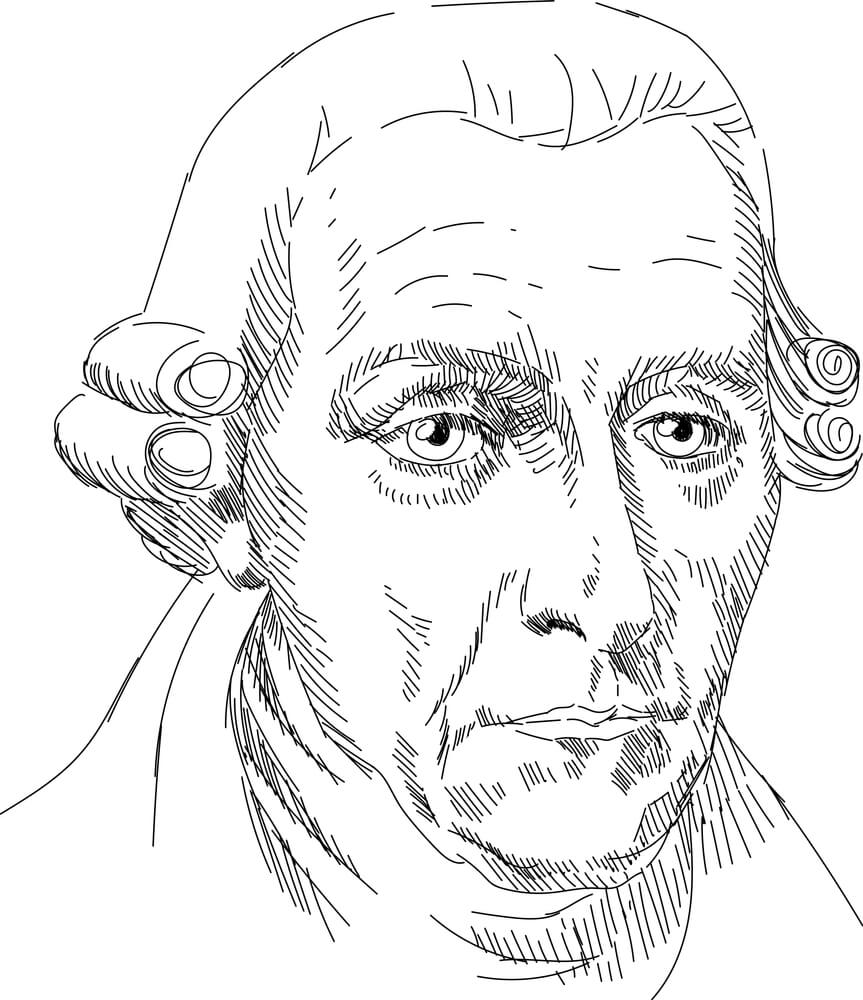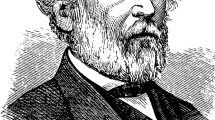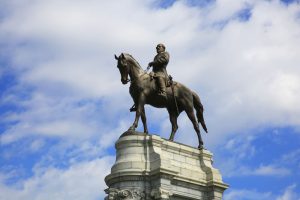Patrick Henry, a key figure in American history, is renowned for his passionate speeches and dedication to liberty. As a Founding Father, he played a crucial role in the American Revolution and impacted the fight for independence. This biography explores his early life in Virginia, political rise in the House of Burgesses, and analyzes his “Give Me Liberty or Give Me Death” speech. His civil liberties advocacy still influences America’s constitutional framework today. Discover how this revolutionary icon helped shape a nation dedicated to freedom and justice.
Who Was Patrick Henry and Why Is He Significant?
Patrick Henry was a prominent figure in the American Revolution, renowned for his fiery oratory skills and unwavering commitment to the cause of independence. Born on May 29, 1736, in Hanover County, Virginia, Henry emerged as one of the most influential founding fathers of the United States. His significance stems largely from his ability to inspire and mobilize colonial resistance against British rule.
Henry’s most famous contribution came in 1775 with his impassioned speech at the Virginia Convention, where he uttered the legendary words: “Give me liberty, or give me death!” This declaration encapsulated the fervent desire for freedom that fueled the revolutionary spirit among colonists. As a skilled lawyer and politician, Patrick Henry played a crucial role in shaping early American political thought and advocating for individual liberties.
During the Revolutionary War, Henry served as Virginia’s first governor and worked tirelessly to support military efforts against Britain. His leadership helped solidify Virginia’s position as a key player in securing American independence. Beyond his wartime contributions, Patrick Henry was instrumental in opposing centralized government power during debates over the U.S. Constitution, championing states’ rights and individual freedoms.
In summary, Patrick Henry’s legacy as a revolutionary war figure is marked by his passionate advocacy for liberty and justice. His speeches not only galvanized support during critical moments of conflict but also laid foundational ideas that continue to influence American democracy today.
Early Life and Background of Patrick Henry

Patrick Henry, a prominent figure in American history, was born on May 29, 1736, in Hanover County, Virginia. His early life and upbringing played a significant role in shaping his future as a passionate advocate for liberty. Born to John Henry and Sarah Winston Syme, Patrick grew up in a family that valued education and hard work. His father was an educated Scotsman who instilled in him the importance of learning and critical thinking.
During his childhood, Patrick Henry was exposed to the political ideas of the time through his family’s active engagement with local issues. The rural setting of Virginia provided him with firsthand experiences of colonial life and the challenges faced by settlers. This environment fostered his deep connection to the land and its people.
One of the most notable early influences on Patrick Henry was his uncle, Reverend Patrick Henry, who introduced him to classical studies and oratory skills. These foundational lessons would later serve him well as he became known for his powerful speeches advocating for American independence.
Growing up in Virginia during a period of political tension between the colonies and Great Britain also shaped young Patrick’s worldview. The principles he absorbed from both familial guidance and societal context laid the groundwork for his future role as a fervent voice against British oppression. Through understanding Patrick Henry’s childhood and early influences, we gain insight into how these formative years contributed to his emergence as one of America’s most influential founding fathers.
Patrick Henry’s Political Career
Patrick Henry’s political career is a fascinating journey that highlights his pivotal role in American history. Known for his fiery oratory and staunch advocacy for individual liberties, Henry’s entrance into politics marked the beginning of a significant era in the fight for American independence.
Henry began his political journey in 1765 when he was elected to the Virginia House of Burgesses. This assembly was the first legislative body in America, and it served as a platform where Henry could voice his radical ideas. It was here that he introduced the Virginia Resolves, which challenged the Stamp Act imposed by Britain. His bold stance against British taxation without representation resonated with many colonists and set the stage for future revolutionary activities.
However, it was Patrick Henry’s “Liberty or Death” speech delivered at St. John’s Church in 1775 that cemented his legacy as one of America’s foremost statesmen. In this impassioned address, Henry called upon his fellow Virginians to arm themselves against British tyranny, famously declaring, “Give me liberty or give me death!” This speech not only rallied support for armed resistance but also solidified Henry’s reputation as a leading advocate for American freedom.
Throughout his career, Patrick Henry remained deeply committed to protecting individual rights and limiting governmental power. His contributions to early American politics helped shape the foundations of democracy and inspired future generations to continue striving for liberty and justice.
“Give Me Liberty or Give Me Death” (Analyzing Patrick Henry’s Famous Speech)
Patrick Henry’s “Give Me Liberty or Give Me Death” speech stands as a monumental moment in American history, embodying the fervent desire for freedom that fueled the American Revolution. Delivered on March 23, 1775, at St. John’s Church in Richmond, Virginia, this speech was a call to arms against British oppression and has since been an exemplar of persuasive public speaking.
The analysis of this iconic speech reveals its strategic use of rhetorical devices and emotional appeals. Henry’s skillful use of ethos, pathos, and logos captivates his audience by establishing credibility (ethos), invoking emotional responses (pathos), and presenting logical arguments (logos). His unwavering conviction and passionate delivery underscore his commitment to the cause of liberty.
Henry’s speeches often highlighted his exceptional public speaking skills, and his ability to engage listeners through vivid imagery and compelling argumentation was unparalleled. In the “liberty or death” speech analysis, one notes how he adeptly builds tension by contrasting freedom with subjugation, ultimately culminating in the powerful ultimatum: “Give me liberty or give me death.” This declaration not only encapsulated the spirit of resistance but also served as a rallying cry for unity among colonists.
In essence, Patrick Henry’s speeches continue to be studied for their masterful construction and profound impact on American history. They offer invaluable insights into effective communication techniques that remain relevant for modern public speakers seeking to inspire change through their words.
The Role of Patrick Henry in the American Revolution and Beyond
Patrick Henry played a crucial role in the American Revolution, serving as a fervent advocate for independence and liberty. His contributions to independence were marked by his powerful oratory skills, most famously demonstrated in his “Give me liberty, or give me death!” speech delivered in 1775 at the Virginia Convention. This impassioned plea rallied support for the revolutionary cause and underscored his commitment to resisting British rule.
As a revolutionary leader, Patrick Henry’s actions extended beyond rhetoric. He was instrumental in organizing Virginia’s military forces and served as the first post-colonial Governor of Virginia from 1776 to 1779. During his tenure, he worked tirelessly to support George Washington’s Continental Army by ensuring that troops received necessary supplies and reinforcements.
Beyond the revolution, Henry’s influence continued as he became a vocal critic of the proposed U.S. Constitution during its ratification debates. Concerned about centralized power potentially infringing on individual liberties, he advocated for amendments that would become known as the Bill of Rights. Patrick Henry’s post-revolutionary influence thus helped shape foundational aspects of American governance and civil rights protections that endure today.
Legacy and Impact
Patrick Henry, a fervent advocate for civil liberties and a pivotal figure in American history, left an indelible mark on the formation of modern America. His legacy is deeply entwined with the foundational principles of the United States, particularly through his influence on the U.S. Constitution and his relentless advocacy for individual freedoms.
Henry’s impassioned speeches, most notably his “Give me liberty, or give me death!” address, underscored his commitment to personal freedoms and resistance against oppressive governance. This fervor was instrumental in shaping public opinion during the American Revolution and beyond. As a staunch anti-federalist, Patrick Henry was wary of a strong central government potentially infringing on individual rights. His concerns about federal overreach led to vigorous debates during the drafting of the U.S. Constitution.
While he did not directly contribute to writing the Constitution itself, Henry’s impact is evident in its subsequent amendments. His advocacy laid the groundwork for what would become one of America’s most cherished documents: The Bill of Rights. These first ten amendments were crucial in ensuring protections for civil liberties such as freedom of speech, religion, and due process – principles that Henry championed throughout his life.
In essence, Patrick Henry’s legacy as a civil liberties advocate not only shaped early American political thought but also set enduring standards for human rights that continue to influence contemporary discussions around governance and individual freedoms in America today.
Reflecting on the Life and Legacy of Patrick Henry
In conclusion, reflecting on the life and legacy of Patrick Henry reveals a figure whose passionate advocacy for liberty and individual rights left an indelible mark on American history. Known for his fiery oratory skills, Henry’s famous declaration, “Give me liberty, or give me death!” encapsulated the fervor of the revolutionary spirit that defined his era. Beyond his speeches, Henry’s commitment to the cause of independence was evident in his political actions and leadership roles.
As a prominent leader in Virginia politics, he played a crucial role in shaping the state’s early governance and was instrumental in opposing British colonial policies. His insistence on safeguarding personal freedoms influenced the creation of the Bill of Rights, ensuring that individual liberties would be protected under the new government.
Patrick Henry’s legacy persists not only through his contributions to American independence but also as a symbol of unwavering dedication to principles over personal gain. His life serves as an enduring reminder of the power of conviction and eloquence in advocating for justice and freedom. As we reflect on his impact, we recognize how Patrick Henry’s ideals continue to inspire those who champion human rights and democratic values today.



